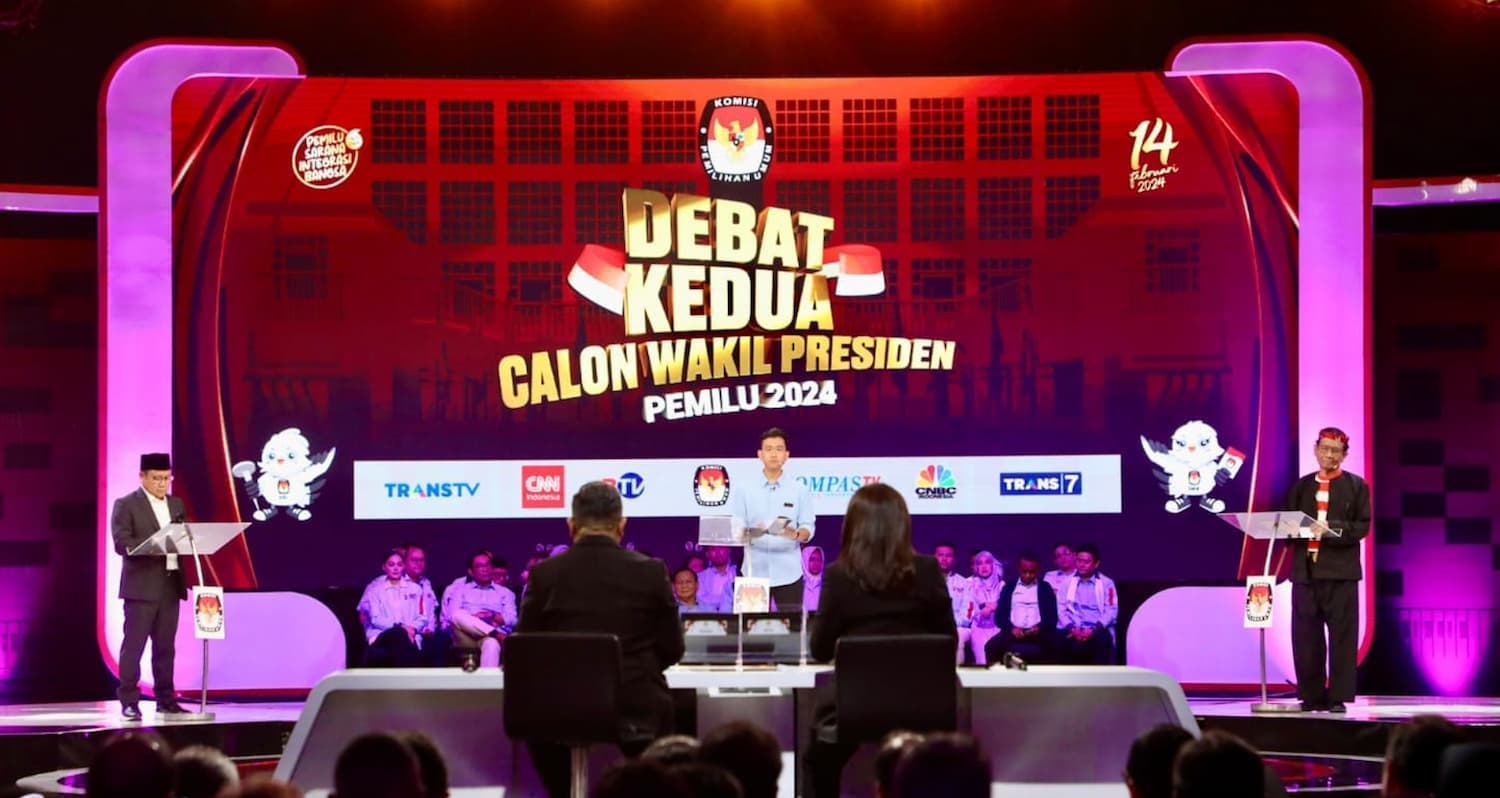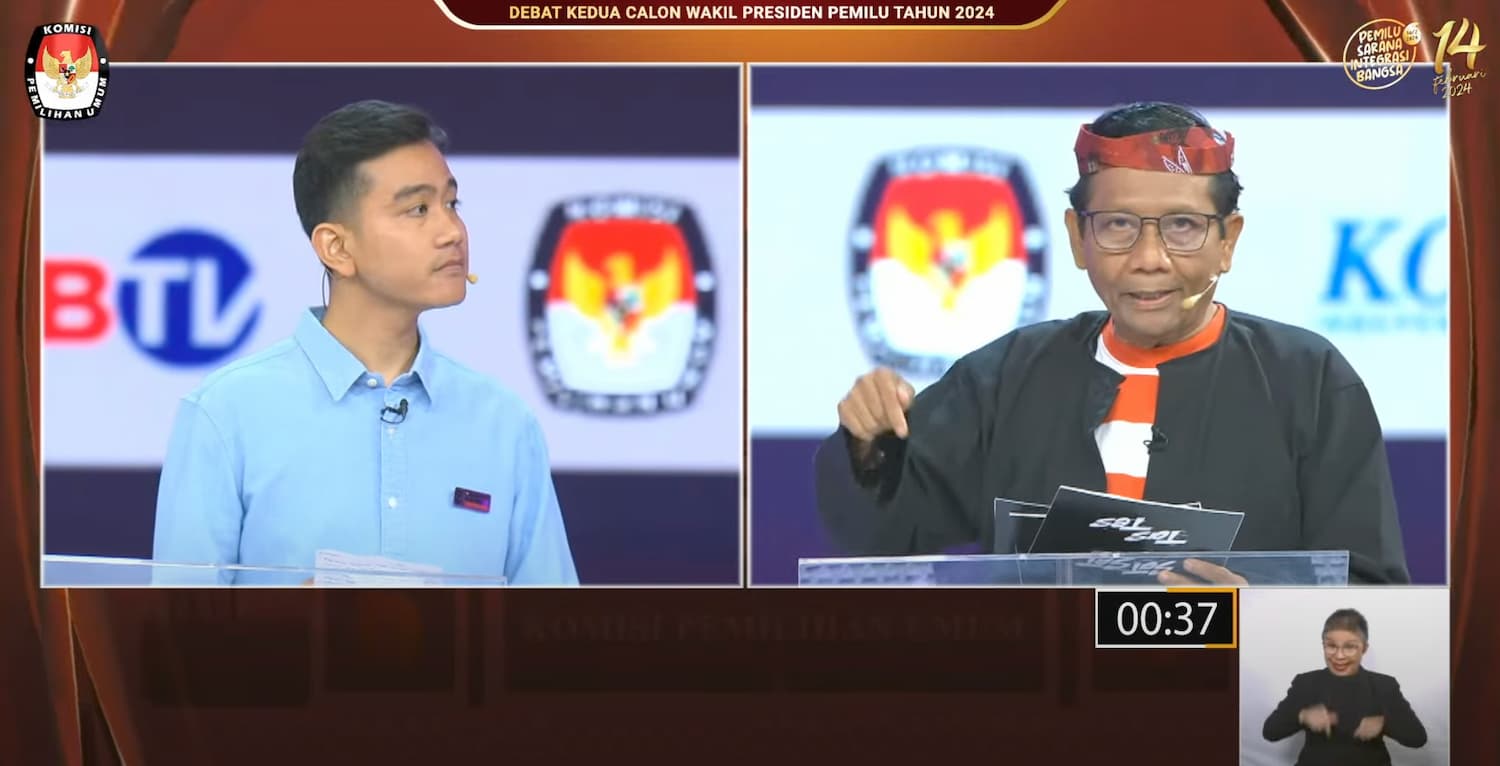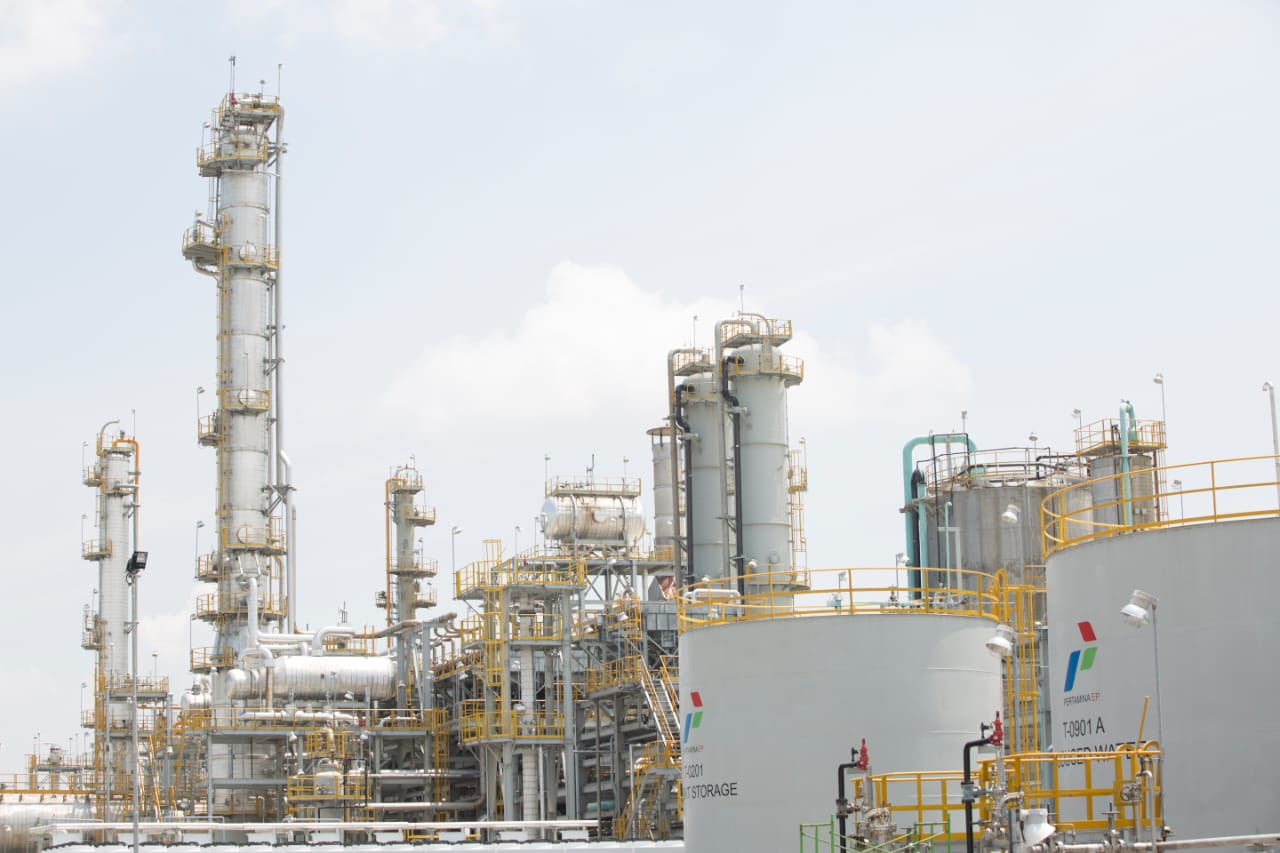
Three Indonesian vice-presidential candidates taking part in the V-P election debate on Dec. 22. (Photo: General Elections Commission of Indonesia)
The second debate of Indonesia Presidential election conducted last Friday, with the vice-presidential candidate from the Great Indonesia Movement Party (Gerakan Indonesia Raya, Gerindra), Gibran Rakabuming Raka, posing a question to Mahfud MD, the vide-president candidate from the Indonesian Democratic Party of Struggle (Partai Demokrasi Indonesia Perjuangan, PDIP), regarding the issue of Carbon Capture and Storage (CCS). This unexpected topic of question has become widely discussed.
At that time, Gibran stated, “Professor Mahfud, considering your expertise in law, I would like to ask you, what are the regulations of Carbon Capture and Storage (CCS)?”
Mahfud responded, “Regulatory experts don’t need to go into specifics regulations one by one, unless there’s already a planned regulation. Then, how do we regulate? First of all, we need to create an academic document. This academic document if … following a simple framework, would be based on the legal study of ROCCIPI. What if there are already existing regulations, what if there are no regulations yet. And then, how’s the opportunity, institutional capacity, public communication. Then … how’s the ideology. These are the ROCCIPI and the procedures. If I were asked about carbon or any other regulations, we would follow this process. However, in my opinion , the most important aspect of anything we do is the need for financial regulatory system.”
Hearing this, Gibran responded, “But coming back to my question, Professor Mahfud spoke for two minutes, but did not actually answer my question. So, what are the regulations regarding Carbon Capture and Storage in Indonesia? My question is really simple, please answer based on what I asked, without drifting off to other areas.”
Unexpectedly, just a few minutes during the debate have brought up numerous discussions in Indonesia. Local media has titled articles as "Gibran's Use of Foreign Language as a Lethal Weapon in Vice Presidential Debate: SGIE, CCS, ICOR – What Do They Mean?" and "On Energy Issues: Mafu lacks Understanding of Carbon Capture," stating that the general public is not only curious about CCS but also questions Mafu's knowledge on energy issues despite being a vice presidential candidate.

Gibran Rakabuming Raka (Left) and Mahfud MD. (Photo: General Elections Commission of Indonesia Youtube)
Regarding the prospects of CCS Industry in Indonesia, Jodi Mahardi, the Coordinating Minister for Maritime Affairs and Investment in Indonesia, emphasized that Indonesia aims to become the Carbon Capture and Storage hub. This initiative is not only expected to support the economic development, but also create new industrial opportunities and expand the global market. Indonesia’s abandoned oil and gas reservoirs have a carbon storage capacity of up to 600 billion tons, making it a significant potential player in the CCS sector.
However, Iqbal Damanik, the Forest Campaigner at the non-profit organization Greenpeace Indonesia, believes that CCS technology is not helpful in reducing the carbon emissions. He mentioned, “besides requiring significant funding, the technology has long transport times and higher risks.” Therefore, he emphasized that Indonesia should focus more on the forest conservation, considering forests including mangroves and peatlands are the natural carbon capture and storage sites. In addition, during the COP28 Conference, there was no clear answer regarding the implementation of CCS technology. He stated, “Even Europe has not successfully implemented this technology, let alone Indonesia.”
Furthermore, Fanny Tri Jambore, the Mining and Energy Campaigner at the Indonesian Forum for the Environment (WALHI), stated that CCS is not the correct solution and could only worsen Indonesia’s climate crisis. She referred to the analysis by the Institute for Energy Economics and Financial Analysis (IEEFA), indicating that Indonesia’s 13 CCS projects can only reduce 39 million tons of carbon dioxide annually. She emphasized, “This number is only one-ten thousandth of the total emissions of 36 billion tons in 2021.”

(Photo: Pertamina)
According to the General Director of Oil and Gas at Ministry of Energy and Mineral Resources (ESDM) in Indonesia, Tutuka Ariadji, as mentioned in the International and Indonesia Carbon Capture and Storage (IICCS) forum, Indonesia has established the CCS center and some regulations related to carbon reduction to support the goal of achieving net-zero emissions by 2060. Currently, Indonesia has 15 CCS/CCUS (Carbon Capture, Utilization, and Storage) projects which still in the feasibility study stage.
Pertamina, Indonesia’s national oil company, is one of the few companies in the country with this technology. Last year, the company had successfully implemented 2 projects and 1 on-going project this year, aiming to increase the oil production.







